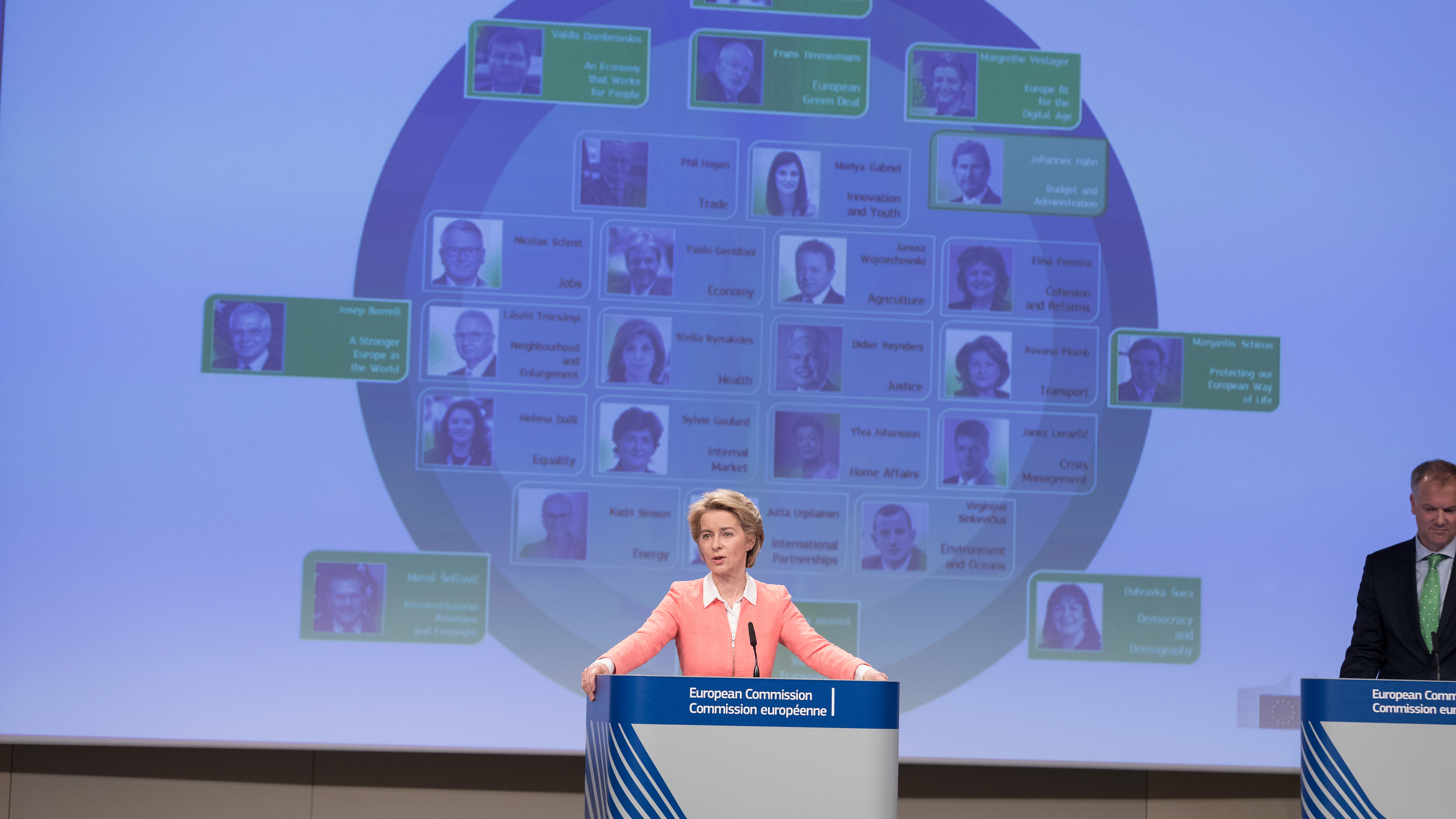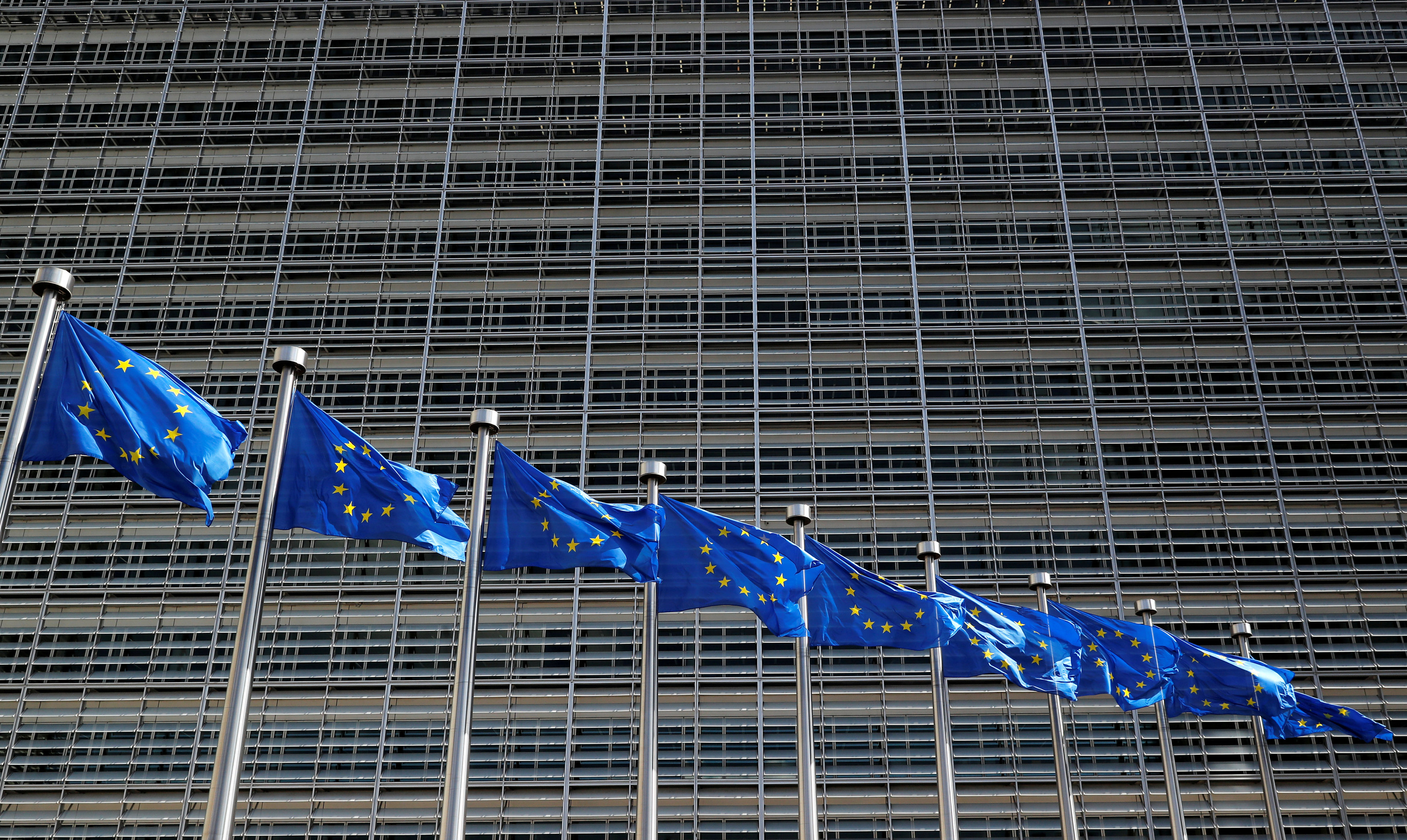

EU Commission President-elect Ursula von der Leyen unveils the new commissioners for 2019-2024 in Brussels, Belgium, September 10, 2019. /VCG Photo
Incoming EU Commission chief Ursula von der Leyen unveiled on Tuesday a "well-balanced, agile and modern" list of candidates to lead European Union policy over the next five years.
The new line-up sees climate policy, digital technology and rekindling Europe's economy top the agenda for the new term.
The 27-member European Commission – the UK, on the verge of leaving the EU, has been left out – will include 14 men and 13 women, including von der Leyen.
It is due to start work on November 1.
Here is a breakdown of the new European Commission.
Executive vice-presidents
Three vice-presidents will have executive powers on top of acting as commissioners and will handle the three "core topics" of von der Leyen's agenda.
Frans Timmermans (Netherlands) has been tasked with climate action policy and carrying out the "European Green Deal."
Margrethe Vestager (Denmark) will keep her previous competition portfolio and add to it digital issues, with the aim of building "a Europe fit for the digital age."
Valdis Dombrovskis (Latvia) will take over financial affairs.

EU flags flutter outside its Commission headquarters in Brussels, Belgium, June 20, 2018. /VCG Photo
Other vice-presidents
Josep Borrell (Spain), unlike other commission members, was already nominated in July by EU leaders. He is the EU's new foreign policy chief.
Margaritis Schinas (Greece) has been tasked with "protecting our European way of life," which will reportedly combine migration, security, employment and education.
Vera Jourova (Czech Republic) has been put in charge of "values and transparency," ensuring the rule of law.
Maros Sefcovic (Slovakia) will deal with "interinstitutional relations and foresight."
Dubravka Suica (Croatia) has been handed the "democracy and demography" portfolio, with the goal of bringing Brussels closer to EU citizens.
Commissioners
The remaining 18 members of the commission will head specific departments, much like cabinet members in a government, including
Johannes Hahn (Austria): Budget and administration
Didier Reynders (Belgium): Justice and rule of law
Mariya Gabriel (Bulgaria): Innovation and youth
Stella Kyriakides (Cyprus): Health
Kadri Simson (Estonia): Energy
Jutta Urpilainen (Finland): International partnerships
Sylvie Goulard (France): Internal market, industrial policy, as well as defense and space
Laszlo Trocsanyi (Hungary): Neighborhood and enlargement
Phil Hogan (Ireland): Trade
Paolo Gentiloni (Italy): Economy
Virginijus Sinkevicius (Lithuania): Environment and oceans
Nicolas Schmit (Luxembourg): Jobs
Helena Dalli (Malta): Equality
Janusz Wojciechowski (Poland): Agriculture
Elisa Ferreira (Portugal): Cohesion and reforms
Rovana Plumb (Romania): Transport
Janez Lenarcic (Slovenia): Crisis management
Ylva Johansson (Sweden): Home affairs
The candidates must still go through confirmation hearings in the European parliament, which are scheduled for between September 30 and October 8, before they are sworn in.
(With input from AFP, Reuters)

Copyright © 2018 CGTN. Beijing ICP prepared NO.16065310-3
Copyright © 2018 CGTN. Beijing ICP prepared NO.16065310-3